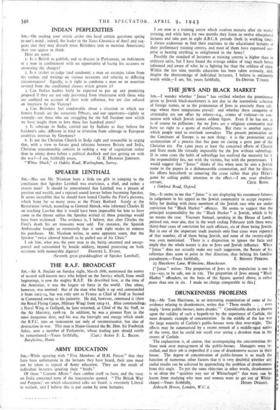DRUNKENNESS PROBLEMS
Snt,—Mr. Tom Harrisson in an interesting examination of some of the evidence relating to drunkenness, writes that "These results . . . even imply 'fewer public-houses, more drunks." Considerable doubt is thrown upon the validity of such a hypothnis by the experience of Carlisle, the most dramatic example of concentration In the middle of the last war the large majority of Carlisle's public-houses were shut over-night. The effects may be summarised by a recent remark of a middle-aged native 'of the town, that he could not recall ever seeing a drunken man in the streets of Carlisle.
The explanation is, of course, that accompanying the concentration the State took over management of the public-houses. Managers were installed, and their job is imperilled if a case of drunkenness occurs in their house. The degree of concentration of public-houses is so much the function of numerous other factors that it 'is very doubtful whether any useful results can be achieved by approaching the problem of drunkenness from this angle. To put the same objection in other words, drunkenness is so oftenthe "quickest way out of Whitechapel" that most can be learnt from studying why men and women want to get out of White
chapel.—Yours faithfully, HENRy DuRorr. Aldwych House, London, W.C. 2.






















 Previous page
Previous page